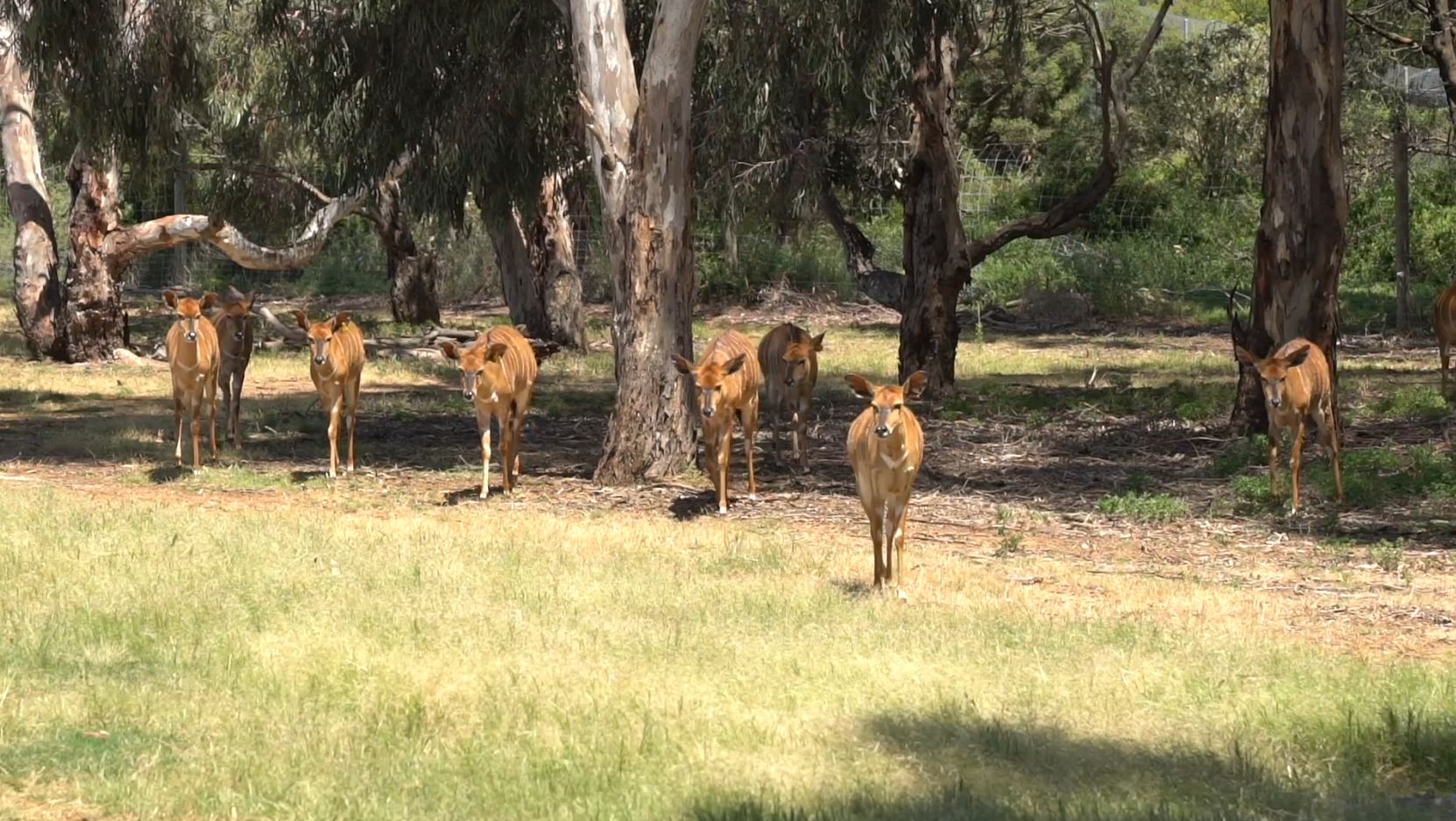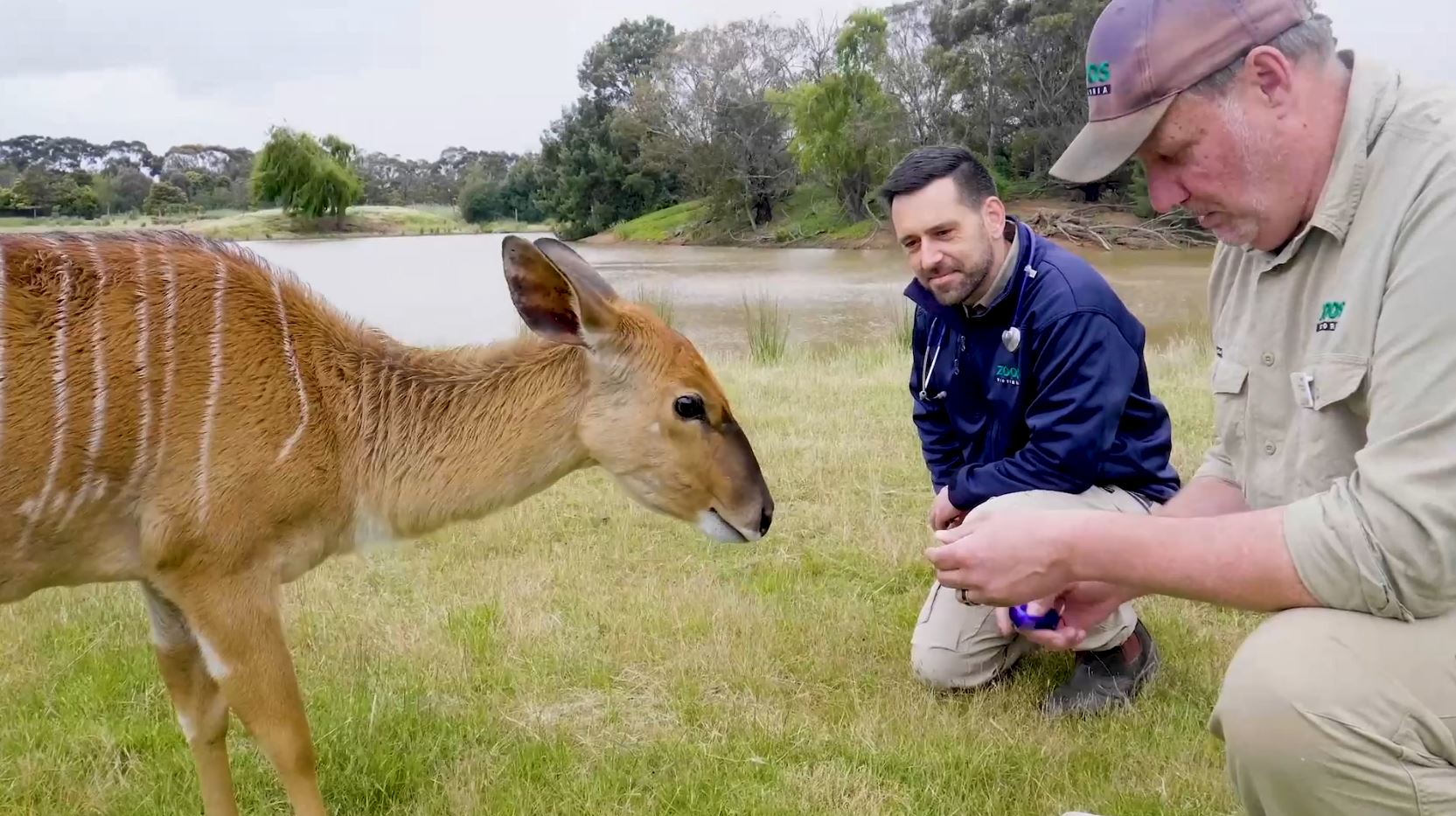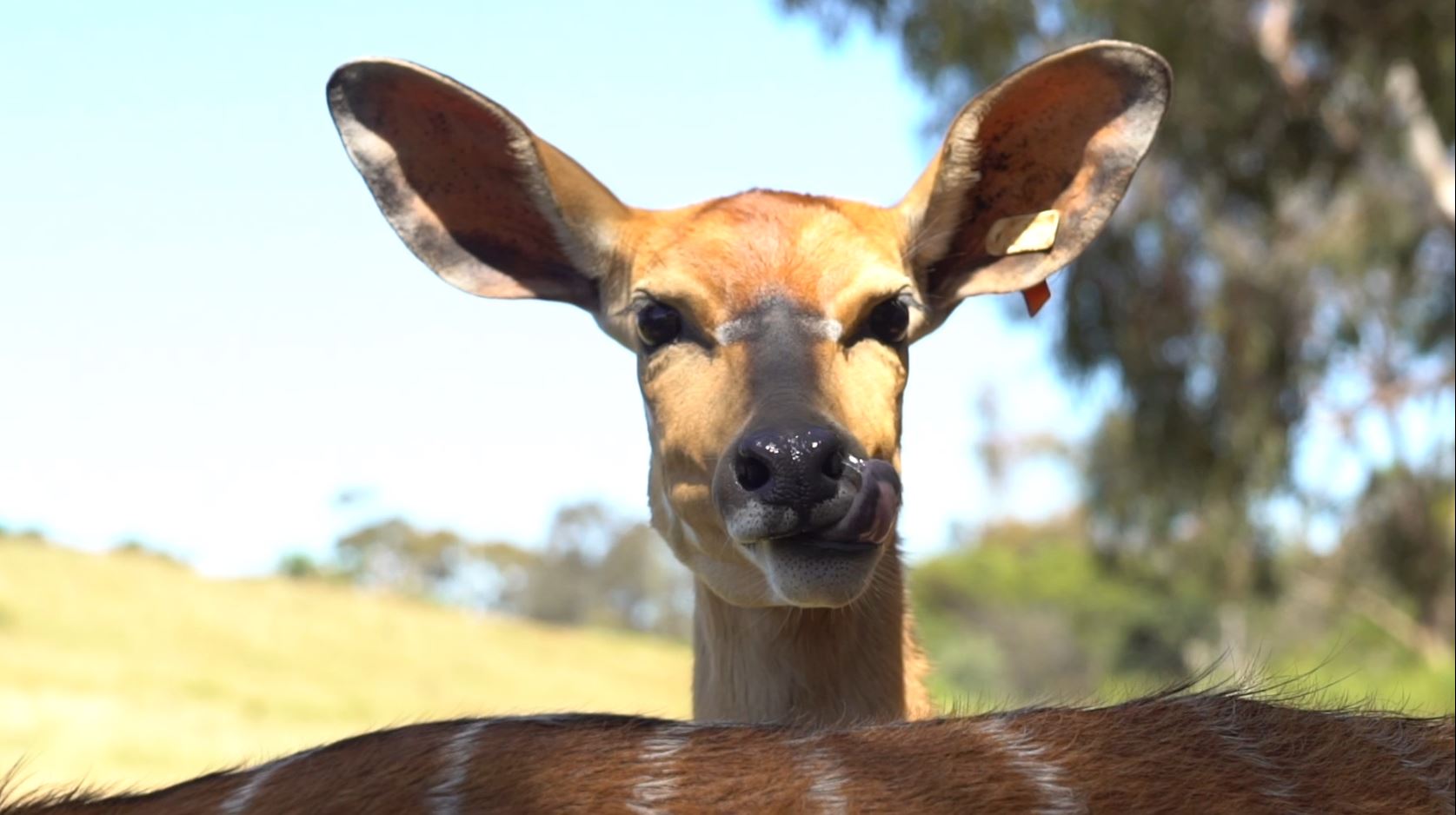Magical animals emerge at Werribee Open Range Zoo
A herd of spectacular and mysterious animals are emerging from deep within the woodlands of Werribee Open Range Zoo’s savannah, providing visitors with special opportunities to see them.

Such extraordinary moments are being made possible thanks to some ground-breaking healthcare initiatives with the Zoo’s Lowland nyala. The naturally bashful and shy antelope herd – who are notorious for being great at hide-and-seek – are developing the confidence to voluntarily approach keepers and vets for up-close and tactile medical assessments within the midst of their eight-hectare habitat.
Werribee Open Range Zoo Savannah keeper Davin Kroeger says the healthcare training is enhancing the way keepers monitor the body condition of the spectacular animals and proving especially beneficial for one very special herd member.
“One of the mothers in the herd, twelve-year-old, Sanaa, became pregnant with her first calf back in 2017, but required an emergency caesarean to safely and successfully give birth,” Mr Kroeger said. “Since then, it’s been important for vets to occasionally assess her surgical site and body condition, which has previously sometimes proven challenging when working with the cautious species.”
Using high-value foods such as carrots as positive reinforcement, Sanaa and her fellow elusive herd members now approach keepers and vets, confidently standing little more than half a metre away. This allows keepers and vets to closely assess or use tactile touch to feel for any potential troublesome lumps, bumps or abrasions.

Mr Kroeger says it is incredible to be able to see and work with the animals up close and that such moments would not be possible without months of training and trust building.
Based on the scientific approach of Applied Behaviour Analysis, the training uses positive reinforcement, provides choice and control, and allows the animals to voluntarily participate in their own medical check-ups which significantly reduces stress and handling.
“We’ve been able to progress to this stage by slowly building trust and spending a lot more time with Sanaa and the other nyala,” Mr Kroeger said. “They’re now comfortable with tactile medical assessments along their necks, and we hope we can progress that to full body tactile assessments in future.

“Sanaa’s story and progression is especially exciting, and it’s such a privilege to be able to care such a special and precious nyala.”
The healthcare training of the nyala herd is part of a wider, innovative, zoo-wide animal training program that provides the highest quality healthcare for the animals. Based on the scientific approach of Applied Behaviour Analysis, the training uses positive reinforcement, provides choice and control, and allows the animals to voluntarily participate in their own medical check-ups which significantly reduces stress and handling.
Lowland nyala are a medium-sized antelope which are native to south-eastern Africa. They have striking white vertical stripes which run down their shimmering chestnut fur and the males can be identified by their large spiralling horns. Scientists estimate nyala have lived for over 5 million years, making them older than humanity.
Zoos Victoria and Werribee Open Range Zoo visitors are reminded that all tickets must be pre-booked online at zoo.org.au. Zoos Victoria Members no longer need to book but are required to scan their Membership card for entry.
